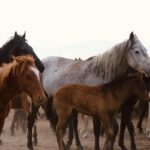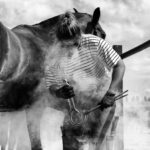Horses, like humans, come in all shapes, sizes, and metabolic variations. While some horses seem to maintain their weight effortlessly on minimal feed, others struggle to keep pounds on despite consuming large quantities of high-quality forage and supplements. These challenging equines, affectionately termed “hard keepers,” present unique management considerations for horse owners. Understanding why certain horses fall into this category involves exploring a complex interplay of genetics, health factors, environment, and individual metabolic differences. This comprehensive examination will delve into the various reasons why maintaining optimal weight can be more challenging for some equines compared to their “easy keeper” counterparts, and provide practical strategies for supporting these special animals.
Genetic Predisposition and Breed Characteristics

Certain horse breeds are genetically predisposed to being harder keepers due to their evolutionary development and selective breeding. Thoroughbreds, Arabians, and many Warmblood varieties typically have higher metabolic rates and leaner body compositions that make weight maintenance more challenging. These breeds were specifically developed for endurance, speed, and athletic performance, resulting in naturally efficient metabolisms that burn calories quickly. In contrast, draft horses and native pony breeds often evolved in harsh environments where food scarcity was common, developing “thrifty genes” that help them extract maximum nutrition from minimal forage. The genetic influence becomes particularly evident when comparing different breeds kept under identical management conditions yet displaying dramatically different weight maintenance patterns. Understanding your horse’s genetic background provides important context for developing appropriate feeding strategies tailored to their inherent metabolic tendencies.
Age-Related Metabolic Changes
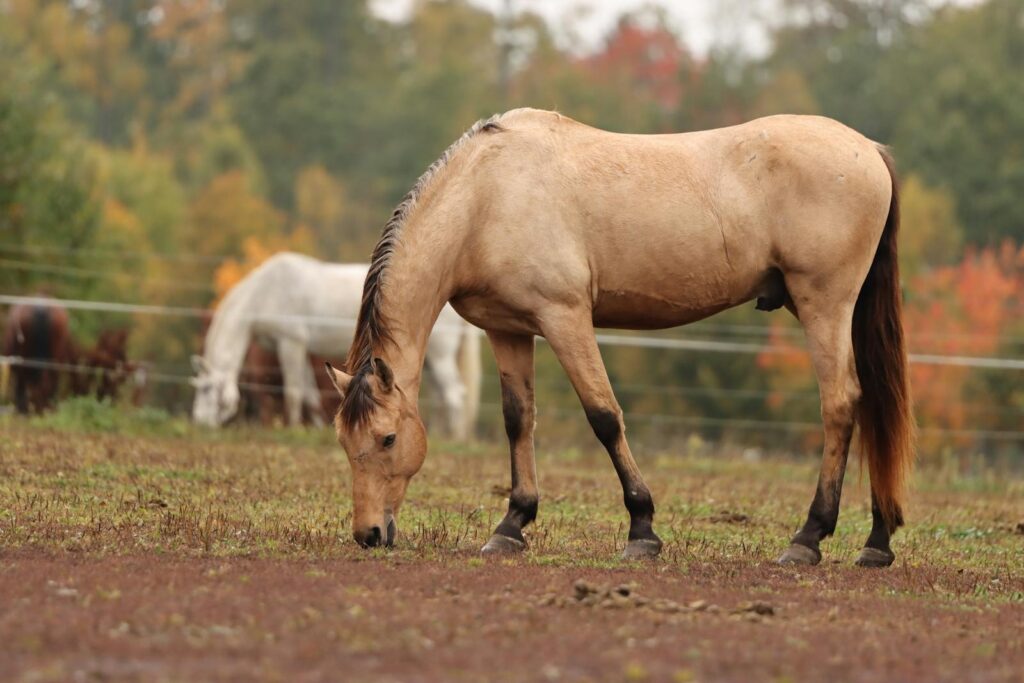
A horse’s age significantly impacts their status as an easy or hard keeper, with distinct challenges appearing at different life stages. Young, growing horses often struggle to maintain weight because their bodies direct substantial energy toward bone development, tissue growth, and physical maturation. Similarly, senior horses frequently become harder keepers as they experience natural physiological changes including decreased digestive efficiency, dental issues that impair chewing, and reduced nutrient absorption in their aging digestive tracts. The metabolic rate typically slows with age, but this benefit can be offset by reduced muscle mass and compromised digestive function. Many horses that maintained weight easily in their prime years gradually transition to hard keeper status after reaching their late teens or twenties. This age-related shift requires proactive management adaptations including diet modifications, dental care, and potentially specialized senior feeds designed for improved digestibility and nutrient concentration.
Digestive Efficiency Variations
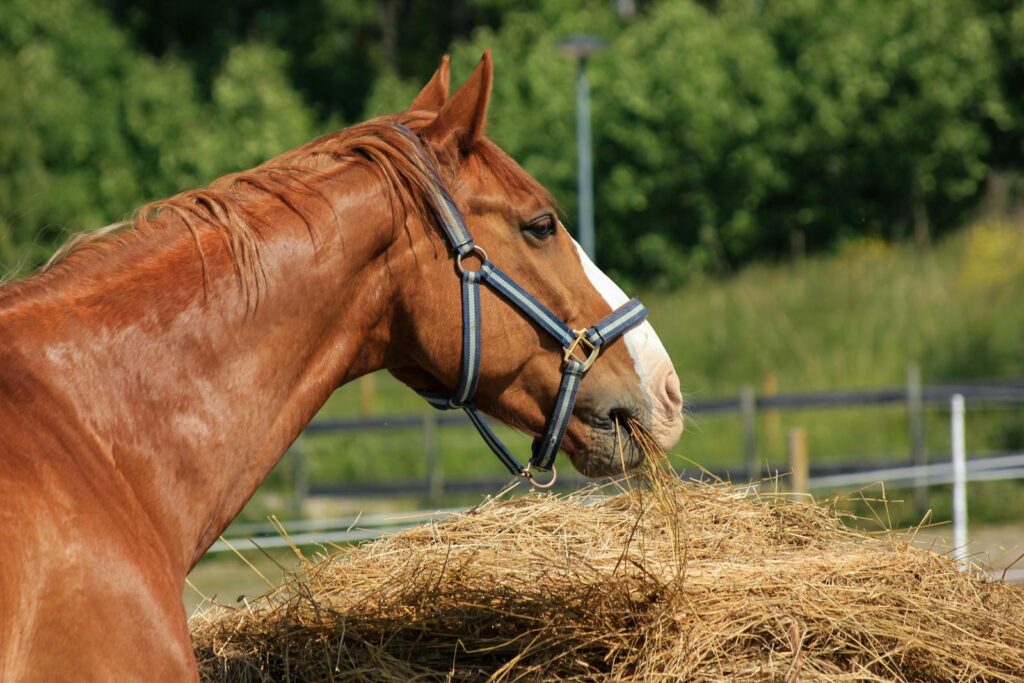
Individual differences in digestive efficiency represent a major factor influencing whether a horse becomes a hard keeper. Some horses naturally possess more efficient digestive systems with optimal gut flora balance, effective enzyme production, and superior nutrient extraction capabilities. Hard keepers often have less efficient digestive processes that fail to extract maximum nutritional value from consumed feed, essentially “wasting” calories that pass through their system undigested. These differences can stem from congenital factors or develop as consequences of past digestive insults such as colic episodes, parasitic damage, or prolonged antibiotic treatments that disrupt beneficial gut bacteria. The length and configuration of a horse’s digestive tract may also contribute to efficiency variations, with some individuals having anatomically shorter digestive passages that reduce nutrient absorption time. Optimizing forage quality, feeding smaller meals more frequently, and adding digestive supplements containing prebiotics or probiotics can help compensate for these inherent digestive efficiency differences.
Dental Health and Chewing Ability

Proper dental function forms the critical first step in the digestive process, directly impacting a horse’s weight maintenance ability. Horses with dental abnormalities including sharp points, wave mouth, hooks, ramps, or missing teeth cannot effectively masticate their food, leading to inadequate mechanical breakdown of feed particles. This impaired chewing ability reduces the surface area available for digestive enzymes to access nutrients, causing partially-digested feed to pass through the system without full nutritional extraction. Senior horses particularly struggle with dental issues as their teeth continue to wear down with age, eventually developing smooth chewing surfaces that cannot properly grind fibrous materials. Regular dental examinations every 6-12 months by an equine veterinarian or qualified dental technician are essential for identifying and correcting problems before they significantly impact weight maintenance. For horses with irreparable dental issues, feed modifications including soaked complete feeds, chopped forages, or pelleted complete feeds can help compensate for compromised chewing ability.
Parasitic Load Impacts
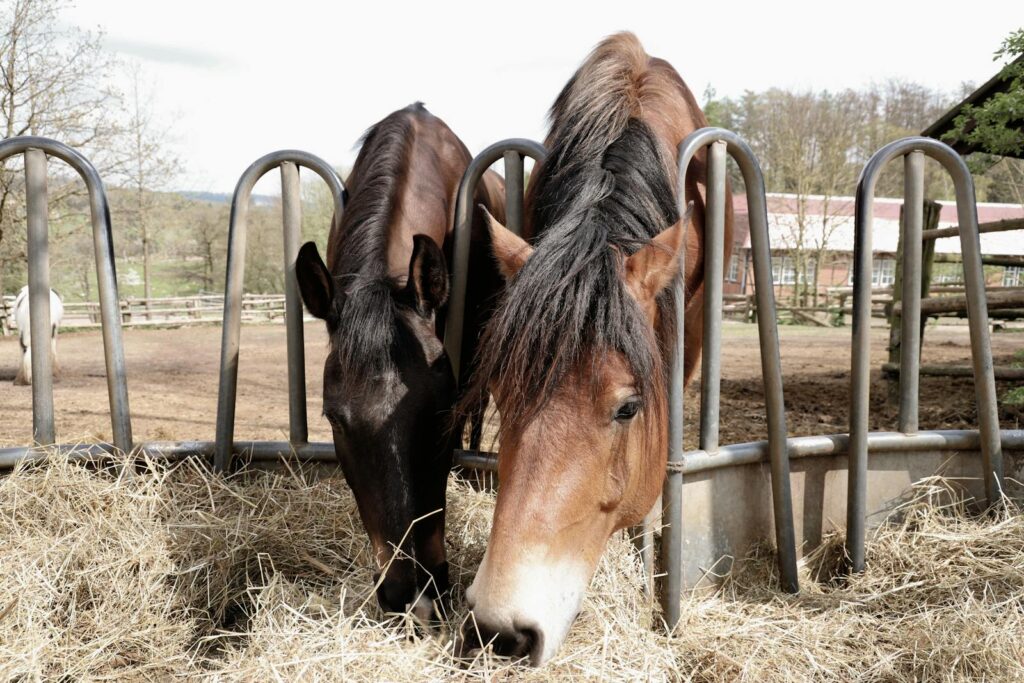
Internal parasites represent a hidden factor that can transform an otherwise easy keeper into a chronically thin horse despite adequate food intake. Common equine parasites including small strongyles, large strongyles, ascarids, tapeworms, and bots all divert nutrients from the host animal while simultaneously causing intestinal inflammation and potential damage to absorption surfaces. Heavy parasite burdens create a metabolic disadvantage where the horse must share its caloric intake with unwelcome internal guests. Historically significant parasites like large strongyles can cause permanent damage to blood vessels supplying the intestines, potentially creating lifelong digestive efficiency issues even after the parasites are eliminated. Implementing a strategic deworming program developed in consultation with a veterinarian and based on fecal egg count testing helps minimize parasite-related weight maintenance challenges. Proper manure management, including regular removal from pastures and turnout areas, further reduces parasite loads by interrupting life cycles before reinfection can occur.
Stress and Environmental Factors

Environmental stress significantly influences a horse’s metabolic efficiency and can transform an otherwise easy keeper into a hard keeper during challenging periods. Horses exposed to extreme weather conditions, particularly cold temperatures, divert substantial energy toward thermoregulation, increasing their caloric requirements by up to 25-30% during severe winter weather. Social stress from herd dynamics, competition for resources, or isolation can trigger stress responses that raise cortisol levels and accelerate metabolism. Transportation, competition, training intensity, environmental changes, and even nearby construction or disturbances can create chronic stress that affects weight maintenance. Hard keepers typically show more pronounced weight loss during stressful periods compared to their easy keeper counterparts, requiring prompt management interventions. Providing adequate shelter, appropriate blanketing during extreme weather, stable social groups, and consistent routines helps minimize environmental stressors and supports weight maintenance in sensitive individuals.
Activity Level and Exercise Intensity

A horse’s workload and activity level directly impact their caloric requirements and potential status as a hard keeper. Horses in intense training programs for disciplines like eventing, endurance riding, or racing burn significantly more calories than their leisure counterparts, requiring proportionally increased nutritional support. Even within the same discipline, individual horses may have varying metabolic efficiencies while performing identical workloads, with some animals naturally expending more energy to accomplish the same tasks. These high-metabolic individuals often display anxious or high-energy personalities, constantly moving in their stalls or pastures and burning additional calories through fidgeting behaviors. Accurately matching caloric intake to actual energy expenditure presents a crucial management challenge for active hard keepers. Adjusting feed programs to account for changing work schedules, competition seasons, and training intensity helps prevent unwanted weight fluctuations in athletically active hard keepers.
Chronic Health Conditions

Underlying health issues frequently contribute to hard keeper status, with certain medical conditions directly interfering with weight maintenance despite adequate nutrition. Chronic inflammatory conditions like equine asthma (previously called COPD or heaves) increase metabolic demands while potentially decreasing appetite and feed consumption. Endocrine disorders affecting the thyroid or pituitary gland can accelerate metabolism or impair nutrient utilization efficiency. Liver dysfunction compromises the processing of nutrients and synthesis of essential proteins needed for tissue maintenance and growth. Chronic low-grade infections or undiagnosed inflammatory processes create hidden caloric drains as the immune system diverts energy toward fighting these ongoing challenges. Identifying and addressing these underlying health concerns through comprehensive veterinary evaluation often resolves mysterious weight maintenance difficulties. Regular health monitoring including annual blood work helps detect subtle abnormalities before they significantly impact body condition.
Digestive Disorders and Ulcers
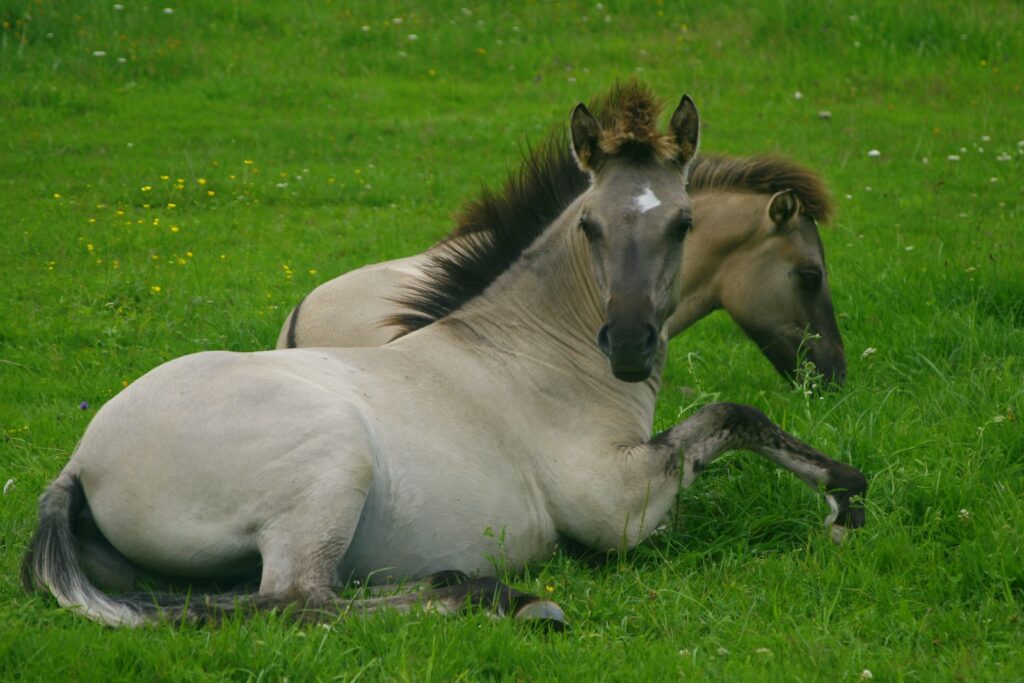
Gastrointestinal disorders represent a common yet frequently overlooked cause of hard keeper status in horses. Gastric ulcers affect an estimated 60-90% of performance horses and create a painful condition that suppresses appetite while simultaneously increasing metabolic demands for healing. More complex disorders like inflammatory bowel disease, malabsorption syndromes, or hindgut acidosis interfere with the intestinal tract’s ability to properly extract nutrients from consumed feed. Small intestinal bacterial overgrowth syndromes alter the microbial balance and can promote harmful bacteria that produce inflammatory compounds rather than beneficial fermentation products. Many hard keepers display subtle digestive discomfort signals including mild colic symptoms, manure inconsistencies, or selective eating behaviors that indicate underlying gastrointestinal issues. Diagnostic procedures including gastroscopy, abdominal ultrasound, or specialized absorption tests help identify specific digestive disorders requiring targeted medical intervention beyond simply increasing feed quantity.
Psychological Factors Affecting Appetite

A horse’s mental and emotional state profoundly influences their eating patterns and can contribute to hard keeper tendencies regardless of available nutrition. Horses experiencing anxiety, depression, or chronic stress often display reduced appetite or irregular eating behaviors that compromise caloric intake. Some sensitive individuals become “stress starvers” who significantly reduce consumption during periods of environmental change, social reorganization, or management transitions. Highly intelligent or easily bored horses may develop selective eating habits, consuming only preferred feed components while leaving essential nutritional elements untouched. Competition for resources in group feeding situations can intimidate timid horses into eating hastily or incompletely, reducing overall consumption despite apparent access to adequate feed. Creating consistent routines, providing multiple small meals throughout the day, ensuring adequate feeding space in group situations, and addressing environmental stressors helps support consistent appetite patterns in psychologically sensitive hard keepers.
Seasonal Variations and Hard Keepers
Many horses display pronounced seasonal patterns in their weight maintenance abilities, alternating between easy and hard keeper status throughout the year. Summer’s heat and insect pressure can reduce appetite and increase energy expenditure through constant movement to escape biting insects. Winter’s cold increases caloric demands while potentially reducing water consumption, which can compromise digestive efficiency and feed passage rates. Spring and fall seasonal coat changes require additional metabolic resources as the body divests and regrows millions of hair follicles. Seasonal changes in available forage quality create nutritional transitions that sensitive digestive systems may struggle to accommodate. Autumn’s natural biological programming may trigger instinctive metabolic changes preparing for winter scarcity, particularly evident in breeds with strong native or primitive genetic influences. Anticipating these predictable seasonal challenges allows proactive management adjustments including strategic feeding modifications, appropriate shelter, insect control measures, and careful monitoring during transitional periods.
Management Strategies for Hard Keepers
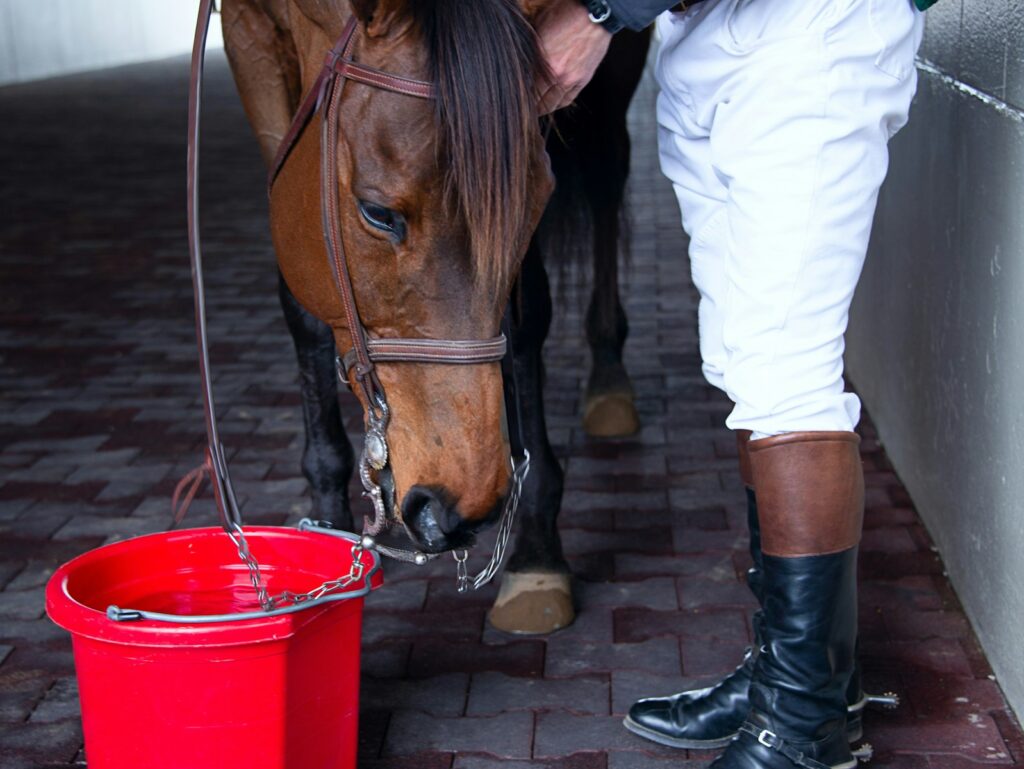
Successful hard keeper management requires a comprehensive approach addressing multiple contributing factors simultaneously rather than simply increasing feed quantity. Providing frequent small meals spread throughout the day maximizes digestive efficiency while mimicking the horse’s natural grazing patterns. Incorporating highly digestible fat sources such as vegetable oils provides concentrated calories without the digestive and metabolic heat risks associated with excessive grain feeding. Selecting premium quality forage with higher caloric density and digestibility offers foundational nutrition that’s safer than relying primarily on concentrates. Using specialized feed additives including prebiotics, probiotics, digestive enzymes, and yeast cultures can enhance digestive efficiency and nutrient extraction from existing diets. Addressing social dynamics to ensure hard keepers have adequate, stress-free access to feed without competition from more dominant herdmates often yields surprising improvements. The most successful management programs combine nutritional modifications with comprehensive health care addressing dental issues, parasite control, and targeted treatment of any underlying medical conditions contributing to weight maintenance difficulties.
Monitoring and Adapting to Individual Needs

Consistency in monitoring and willingness to adapt management strategies represent crucial elements in successfully maintaining hard keepers. Regular weight tracking using weight tapes, body condition scoring systems, or digital scales provides objective measurements that detect subtle changes before they become significant problems. Photographic documentation from consistent angles offers visual comparison tools that often reveal changes not immediately obvious through casual observation. Keeping detailed records of feed consumption, manure quality, energy levels, and coat condition helps identify patterns and responses to management changes. Hard keepers frequently require seasonal adjustments to their nutritional programs, with caloric needs potentially varying by 25% or more between summer and winter months. The most successful hard keeper management programs incorporate regular reassessment intervals with predetermined adjustment protocols rather than waiting for visible weight loss to occur before making changes. This proactive approach prevents the metabolic setbacks that occur when horses lose significant weight, as regaining condition requires substantially more resources than maintaining existing weight.
Conclusion
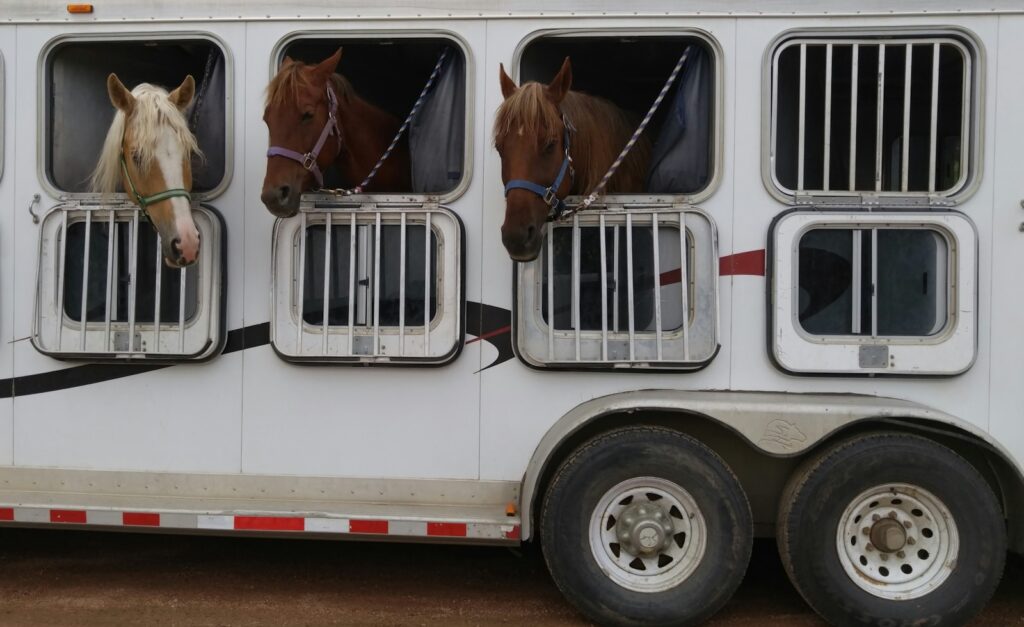
Understanding why some horses struggle to maintain weight requires considering the complex interplay of genetics, metabolism, digestive efficiency, health status, and environmental factors. Rather than simply labeling a horse as a “hard keeper” and applying a one-size-fits-all solution, successful management depends on identifying the specific factors contributing to each individual’s challenges. By addressing dental health, parasite control, digestive efficiency, stress reduction, and underlying medical conditions alongside appropriate nutritional adjustments, even chronic hard keepers can achieve and maintain healthy body condition. The extra attention required by these special equines often strengthens the bond between horse and caretaker, fostering a deeper understanding of their unique needs and responses. With patience, observation, and willingness to adapt management practices, owners can successfully support these metabolically challenged horses throughout their lives.



